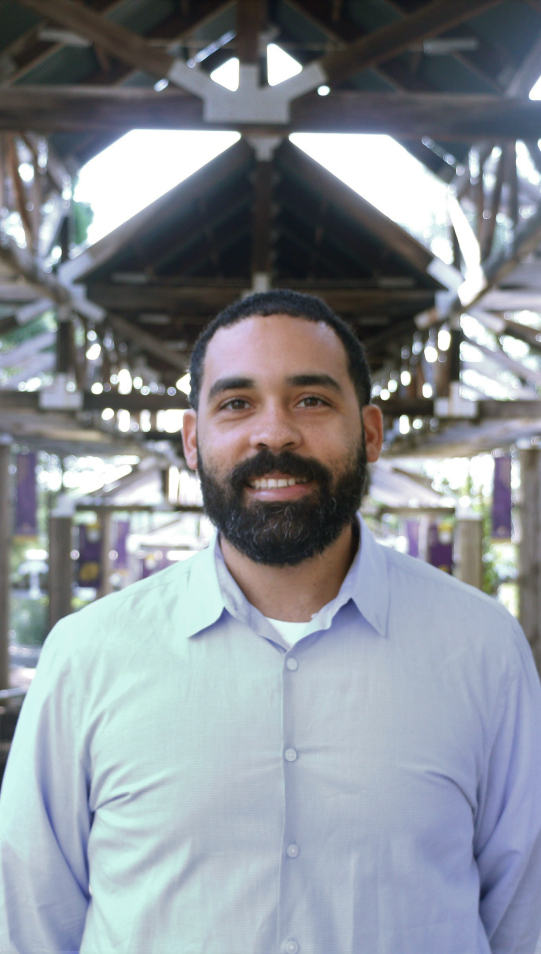Criminal Justice & Criminology
Serve your community through social justice.
Earn your criminal justice degree at Concordia University Texas and be prepared for entry into a variety of careers with diverse employers or lay the foundation to continue your studies in a graduate-level or professional program.
Whether you choose to major in criminal justice and criminology, or you select one of the two minors, you will examine the intrinsic nature of justice and how it impacts our society. With access to every state agency that deals with crime in the city, our students have the unparalleled ability to observe legislature, watch trial and appellate courts in action, and perform internships with a social justice agency.
Online or on campus

15:1 Student-to-Faculty
Major or Minor
Major or Minor in Criminal Justice and Criminology
Choose to pursue the criminal justice major or combine one of two minors with another subject to better fit your future goals. The major and two minors are offered in online and on-campus formats.
Criminal Justice and Criminology Major
Gain a well-rounded foundation in the related fields of criminal justice and criminology. Restorative justice concepts will be central as you develop into a Christian leader whose vocation will be to deal with crime in all its forms and levels, with its varied participants and consequences.
Criminal Justice and Criminology Minor
This minor can be combined with other areas of study to create a robust degree that fits your unique needs. The minor consists of six courses which total 18 credit hours.
Legal Studies Minor
This minor is recommended for pre-law students. The minor consists of 19 credit hours, which includes six courses and one internship where you will gain in-depth experience to propel your studies and career forward.
A criminal justice degree that prepares you for the next step

Personalized experience
With small classes and dedicated mentoring from experienced faculty, you'll receive an education that sets you apart from the pack.

Launch your career
Gain the foundational education you need to excel, whether your professional pursuits take you into the law enforcement academy, graduate school or law school.

Justice through a faith-based lens
At Concordia, we approach the broad topic of criminal justice guided by our faith. Through the program, you will examine social and historical justice and be encouraged to consider what criminal justice means to you.
Request more info
Criminal Justice Careers & Salary
Criminal Justice Career Outcomes
A criminal justice career path can encompass a variety of possibilities, including:
- Correctional Officers
- Defense Attorneys
- FBI/ATF Agents
- Police Detectives
- Police Officers
- Probation Officers
- Profilers
- Prosecutors
- Trial Judges
- Security Specialists
- Social Workers
- Victims’ Advocates
 |
Some unique features of the Criminal Justice program at Concordia are the unlimited post-grad resources, the amount of one on one time you get with your professors and the support you get from the University. Getting the opportunity to attend social events, being apart of the Criminal Justice club and having advisors who are so invested into helping you succeed helps set the foundation for a smooth post-grad transition.
-
Accreditation
Concordia University Texas is accredited by the Southern Association of Colleges and Schools Commission on Colleges to award the associate, bachelor, and master degrees along with the Doctorate in Education (Ed.D). Concordia University Texas also may offer credentials such as certificates and diplomas at approved degree levels. Questions about the accreditation of Concordia University Texas may be directed in writing to the Southern Association of Colleges and Schools Commission on Colleges at 1866 Southern Lane, Decatur, Georgia 30033-4097, by calling 404-679-4500, or by using information available on SACSCOC’s website (www.sacscoc.org).
-
Admissions requirements
Criminal Justice Admissions requirements
Students coming to Concordia directly from high school with no full-time college experience must have:
- GPA of 2.5 (on a 4.0 scale)
Students who fall below the above requirement will be evaluated by the Office of Admissions and may still be eligible for admission to Concordia. Please contact your Admissions Counselor if you have questions about achieving admission.
If you are transferring to Concordia:
- Transfer students with 12 or more college-level credit hours completed must have a minimum 2.0 cumulative GPA.
- Transfer students with fewer than 12 college-level credit hours completed must meet
freshman admission requirements.
Visit our admissions page to learn more.
- GPA of 2.5 (on a 4.0 scale)
-
Tuition and aid
Criminal Justice Program Tuition & Aid
At Concordia Texas, we're widening the doors to higher education by making a college degree more accessible and affordable. Learn more about how you can achieve an affordable education.
-
Student resources available
At Concordia, we offer additional resources to ensure your success, including the writing center, math center, speech center and peer tutoring. The CTX Library's eBook collection of over 180,000+ items is available 24/7. The library also provides several Research Guides and Tutorials and you can chat with a librarian 24/7 for additional help. Because you’re a person and not just a student to us, mental health screening, resources and support are also available. Check out our mental health page for more information.
-
FAQS
What are possible criminal justice career paths?
There are several things to do with a criminal justice degree. Whether your goal is to be a law enforcement officer, prosecutor, corrections officer, judge, security consultant, FBI agent, intelligence analyst, game warden, criminal defense attorney, parole officer or case worker, we will teach you new ways of thinking about justice, faith, government and law.
Why study criminal justice and criminology?
Most people enter law enforcement and criminal justice careers because they want to help others. Criminal justice offers you the ability to use your knowledge and skills for good, whether through aiding victims of crime, counseling and rehabilitating criminals, or overseeing the progress of a parolee.
At Concordia, our goal is to stand apart from other criminal justice schools by providing education through a Christian lens to develop servant leaders who are passionate and capable of making a difference in their communities.


Our program approaches the Criminal Justice System from a sociological perspective and emphasizes the clear distinction between man’s law and God’s law. This nucleus of the experience in the major helps to assist future leaders in the field to recognize their humble servitude and perspective while enforcing societal laws.
Dr. Bruce ReeseDirector of Criminal Justice/Criminology MajorGain the knowledge you need for entry into a variety of careers or lay the groundwork for graduate or professional programs.
Request more info







